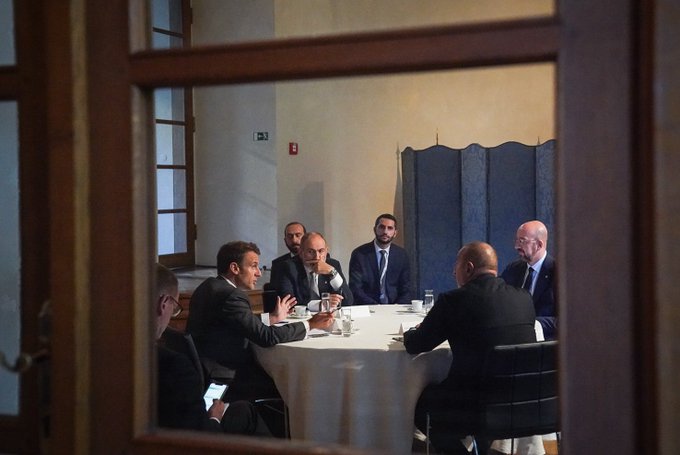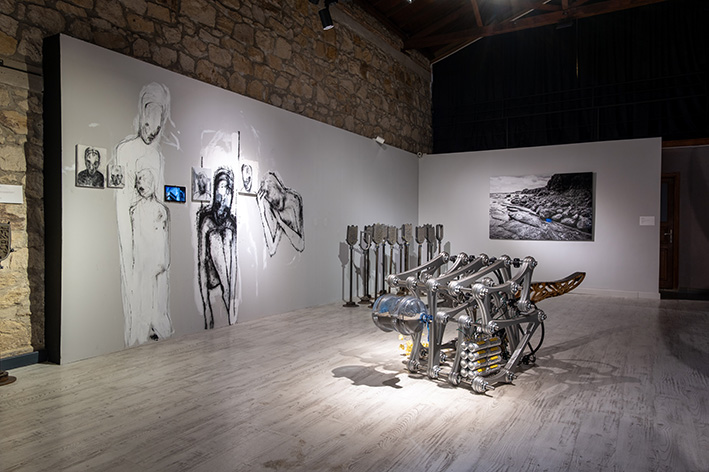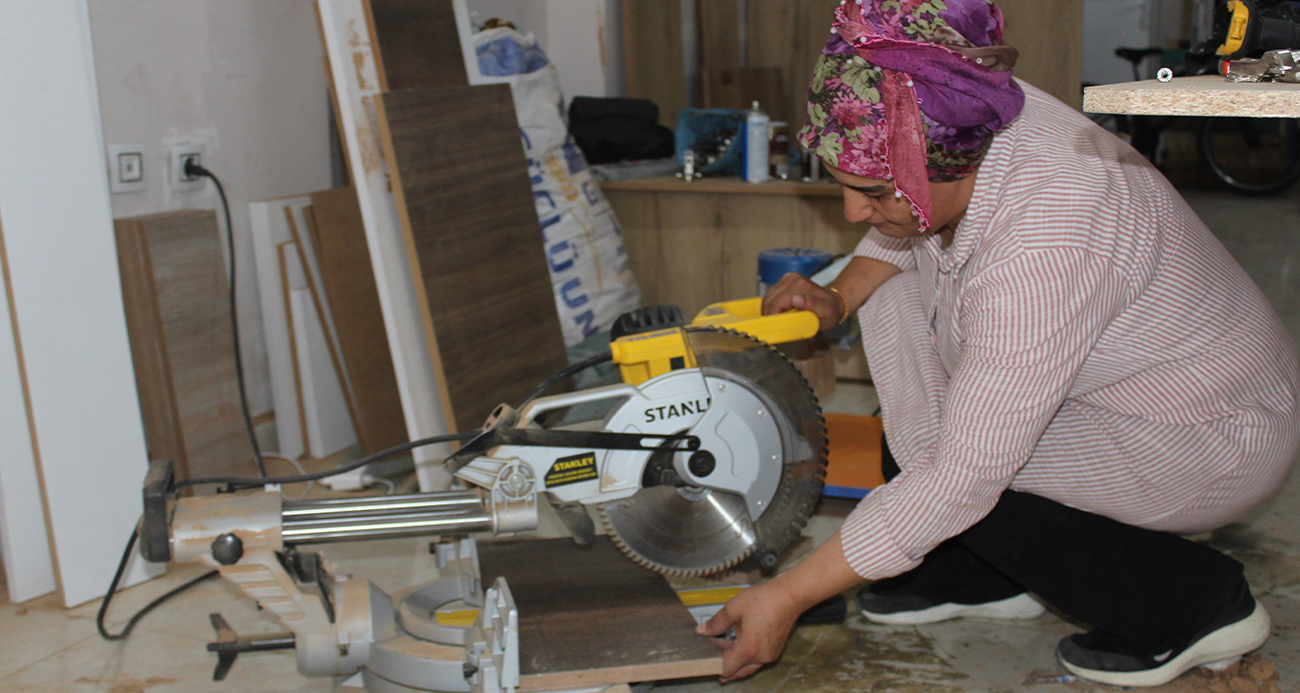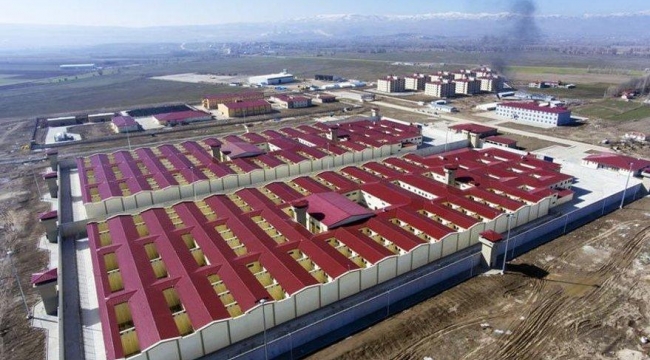Russia has been concerned with the US and EU mediation in the peace process between Azerbaijan and Armenia, and the deployment of civilian mission from the Western countries along the Armenian-Azerbaijani border is seen as an attempt to extend the Western influence on the region where the Russian influence might gradually fade away as the result of Russia's war against Ukraine.
On October 6, 2022, within the framework of the first meeting of the European Political Community in Prague, which is a new political platform created by the European Union, Prime Minister of Armenia Nikol Pashinyan and President of Azerbaijan Ilham Aliyev held a meeting at the initiative of the president of France and the president of the European Council Charles Michel. The main outcome of the Prague meeting was the agreement of the Armenian and Azerbaijani leaders to implement the UN Charter and the Alma-Ata Declaration of 1991 which implies that both sides will recognize each other’s territorial integrity and sovereignty. They confirmed that this would serve as the basis for the work of the commissions on delimitation.
Following the meeting between Armenia and Azerbaijan, Nikol Pashinyan also met with Erdoğan, the first official meeting between the two. There is an opinion that one of the reasons for Azerbaijan's rush to sign a peace agreement can be related to the upcoming general elections in Turkey. While the ruling and the major opposition parties have shown unconditional support of Azerbaijan (except for HDP, which called on Turkey to remain neutral and conduct a balanced policy), it is still unclear what will be the policy of the Turkish opposition concerning Russia. Turkey remains the only NATO ally not to join the Western sanctions on Russia, which has led to a growing criticism by the Western countries, accusing Ankara of helping Russia to evade the sanctions. Thus it is still unclear to what extent the Turkish opposition, in case of its victory in the 2023 elections, will continue the strategic alliance with Russia especially in a scenario where Putin loses the war he launched against Ukraine.
Absence of a reference to Nagorno-Karabakh
Some experts interpret the absence of a reference to Nagorno-Karabakh in the Prague talks and Pashinyan government’s commitment to the 1991 Astana Declaration as his readiness to recognize Nagorno-Karabakh as part of Azerbaijan. Aliyev has continuously declared that Nagorno-Karabakh - is the matter of an internal issue of Azerbaijan and that it is up to the Azerbaijani government to decide how to talk to its citizens. In several public speeches, Pashinyan gradually prepared the Armenian society to reconcile with the idea of lowering the bar on Karabakh’s status. Facing solid domestic criticism over his policy to recognize Nagorno-Karabakh as a part of Azerbaijan, Pashinyan has continuously blamed the previous governments for not resolving the Nagorno-Karabakh conflict when Armenia had an advantageous position as the winner, while failing to accept the role of his government in the current political crisis.
Another outcome of the Prague summit was the announcement of the president of France Macron that the European Union (EU) will dispatch the civilian mission along Armenia's border with Azerbaijan. The mission will start work in October for a maximum period of two months. The shifting regional geopolitical situation aftermath of the Russian invasion of Ukraine has made it possible for a more proactive involvement of the Western actors in the Azerbaijani-Armenian negotiation process. Considering the inactivity of the OSCE Minsk Group aftermath of the 2020 war, the facilitation of the bilateral talks between Baku and Yerevan and the deployment of the EU civilian mission can be read as a signal of the EU's readiness to prevent a further humanitarian crisis in the region by monitoring the situation on the Armenian-Azerbaijani border from the Armenian side. The mission will start work in October for a maximum period of two months, which is not a sufficient time and speaks rather of the limited capacity of the EU involvement in the region.
Pashinyan and Aliyev in St. Petersburg
Immediately after the Prague meeting, Pashinyan and Aliyev left Prague for St. Petersburg, to attend an informal CIS summit, which also coincided with the 70th anniversary of Vladimir Putin. On the background of Russia’s growing global isolation, the gatherings of the post-Soviet leaders around the Russian president attempts to project a symbolic image of Moscow remaining a leading actor in the post-Soviet ‘near abroad’. Russia has been concerned with the US and EU mediation in the peace process between Azerbaijan and Armenia, and the deployment of civilian mission from the Western countries along the Armenian-Azerbaijani border is seen as an attempt to extend the Western influence on the region where the Russian influence might gradually fade away as the result of Russia's war against Ukraine. The Russian invasion of Ukraine, international sanctions and the Western countries’ preoccupation with the war in Ukraine have emboldened Azerbaijani offensive on September 13-14, this time on the sovereign territory of the Republic of Armenia, killing at least 207 Armenian and 80 Azerbaijani soldiers.
The Armenian leadership, the pro-government media and some segments of society have been expressing dissatisfaction with its formal ally Russia’s inability to fulfill its obligations to provide military aid to Armenia as stipulated in the CSTO’s treaty. The September escalation on the Armenian territory has shown that Russia is unwilling to take sides in the Armenia–Azerbaijan conflict and does not want to damage its relations neither with Azerbaijan, nor with Turkey, which became more important after the Western sanctions imposed on Moscow. Another critical question, coming out of the current negotiations format, where the fate of the Nagorno-Karabakh Armenians remains unclear, is what will happen to the Russian peacekeepers deployed in Nagorno-Karabakh which are expected to function by the end of 2025. Once the Armenian-populated Nagorno-Karabakh, which currently remains in the zone of responsibility of the Russian peacekeeping contingent, is incorporated into Azerbaijan, there will be no point in prolonging the mandate of the Russian peacekeeping forces. This scenario is favorably seen by the Azerbaijani government and the overwhelming part of the society, which was unhappy with the deployment of the Russian peacekeeping contingent in the region.
Yerevan’s sixth point
In the peace treaty, developed between Armenia and Azerbaijan and consisting of five main points, Yerevan has also included the sixth point - the reference to the securing the survival of a territorially defined Armenian Karabakh within Azerbaijan, which Baku rejected. In his recent interview to the TV Net, Mevlut Çavuşoğlu has reaffirmed Turkey’s continuous support of Azerbaijan and the necessity for Armenia to sign the peace agreement based on five principles. The structural issue with three-decade long negotiations over the Nagorno-Karabakh conflict was the denial of the agency of the Nagorno-Karabakh population that has created the reality where the Nagorno-Karabakh Armenians have been expected to follow the agreement reached between Baku and Yerevan without having any saying in it.
The clandestine diplomacy between Azerbaijan and Armenia and the limited information regarding the process and the clauses of the peace deal continue to push civil societies of both countries to the margins. The weakened position of Armenia and Russia’s inability to protect its formal ally is seen as a convenient moment for Baku to intensify a pressure on Armenia forcing it to sign the peace deal on its terms. This pressure along with the aggressive patronizing rhetoric of Azerbaijan, circulation of the state discourses on the historical claims on the southern part of Armenia where the so-called Zangezur corridor is supposed to pass do not bring the sides closer to the sustainable peace achievement. The ambiguity around the “Zangezur corridor” remains one of the most controversial issues, with the Armenian side insisting on the unblocking the transport communication and Azerbaijan continuing to demand that Armenia provide a “corridor” through the south of the country, the Syunik region, a road that the Armenian side will not control. As the International Crisis Group’s latest report warns, Baku’s growing military dominance may encourage it to take a harder line, which will cause a severe political crisis in Armenia and further lower trust of the Armenian government in the futility of any peace talks with Baku.
Two years passed since the end of the 44-day war, and except the verbal promises, the Azerbaijani government failed to develop any comprehensive document that would deal with the concerns of the Nagorno-Karabakh Armenian population, provide guarantees of their physical and cultural security and develop trust-building mechanisms. With the increasing military and power gap between Azerbaijan and Armenia, a current ambiguity around the Armenian-Azerbaijani peace agreement, the absence of a concrete roadmap on the confidence-building measures between the sides and absence of tangible security guarantees to the Nagorno-Karabakh Armenians, the prospects for long-term sustainable peace remain obscure.





